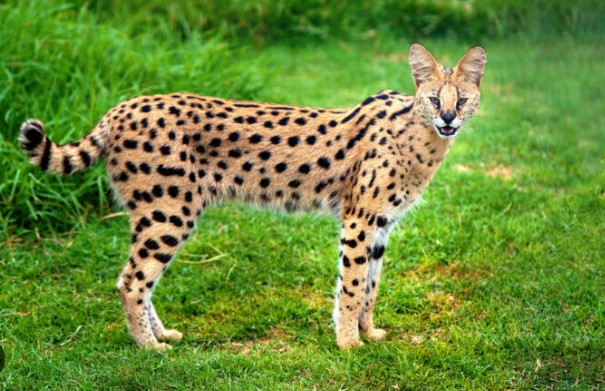Welcome to our in-depth exploration of the enigmatic serval cat, a captivating creature native to sub-Saharan Africa. In this comprehensive guide, we’ll delve into various aspects of serval Cat ownership, from their unique characteristics to their specific care requirements. Whether you’re an enthusiast or considering bringing one into your home, join us on this journey to understand the world of servals.
Serval Cat BreedCharacteristics
The serval cat is a remarkable species characterized by its long legs, spotted coat, and agile demeanor. These wild predators possess specific needs, including vast living spaces, warm climates, and a diet consisting of live prey. Due to their wild nature, servals are not typically suited for family life. However, for those equipped to provide the necessary care, legal considerations must be addressed, as ownership of these majestic felines is prohibited in many states.
Serval Cat Breed Overview

- Serval Cat Personality: Independent, aloof, intelligent, athletic
- Serval Cat Weight: 20 to 40 pounds
- Serval Cat Length: 2 feet
- Serval Cat Coat Length: Short
- Serval Cat Coat Colors: Golden yellow to buff with black spots and stripes
- Serval Cat Coat Patterns: Spotted
- Serval Cat Eye Color: Amber
- Serval Cat Lifespan: Around 20 years in captivity
- Serval Cat Hypoallergenic: No
- Serval Cat Origin: Africa
The History Of The Serval Cat
The history of the Serval cat traces back to its origins in the African wild, where these solitary creatures establish territories spanning several miles. Over centuries, they have inhabited the continent and are currently found in 35 countries. Human interaction with Servals dates back to ancient Egyptian times, as depicted in historical artwork.
Despite this prolonged association, Servals have never undergone full domestication. Breeding efforts introduced them to the United States over a century ago, leading to the presence of generations removed from their African ancestors. It’s essential to note that even domestically bred Servals fall under ownership restrictions outlined in exotic animal laws. Furthermore, breeders have conducted crossbreeding experiments, resulting in hybrids like the Savannah cat, blending Serval traits with domestic felines.
Care and Health
Providing adequate care for a serval entails creating a large, secure outdoor enclosure that accommodates their high activity levels. Additionally, attention must be given to their dietary requirements, which primarily consist of live prey. While declawing is sometimes practiced, it’s important to note the associated risks and ethical considerations. Health issues, such as foreign object ingestion, highlight the need for specialized veterinary care.
Appearance and Diet
Distinctive features, including their slender build, large ears, and spotted coat, distinguish servals from other feline species. Their dietary preferences lean towards live prey, mirroring their natural hunting behaviors. Supplemental pelleted diets may be included but should not comprise the bulk of their meals to maintain optimal health.
read more about Serval Cat on www.thesprucepets.com
Where to Adopt or Buy a Serval Cat

Legal considerations are paramount when considering serval ownership, as regulations vary across regions. Prospective owners should research local laws and seek reputable sources for adoption or purchase. The Feline Conservation Foundation can provide valuable guidance in navigating this process.
Serval Cat Overview
In summary, servals are captivating creatures that demand specialized care and attention. While their exotic allure may appeal to some, potential owners must carefully consider the challenges associated with serval ownership. From legal restrictions to dietary requirements, the commitment involved is significant, making servals a choice suited for a select few.
RELATED POST
FAQ
What are some alternatives to owning a serval as a pet?
Savannah cats, hybrids of servals, and domestic cats offer a viable alternative, although legal restrictions may apply. Adoption from local shelters is also recommended for those seeking feline companionship.
How rare are serval cats?
Due to legal constraints, the prevalence of serval cats in the United States remains uncertain. While approximately 150 servals reside in zoos nationwide, their status as pets varies based on regional regulations.
Are serval cats aggressive?
While servals may not exhibit aggression towards their owners, their predatory instincts may manifest when interacting with smaller animals. Understanding and respecting their natural behaviors is essential in fostering a harmonious relationship.











